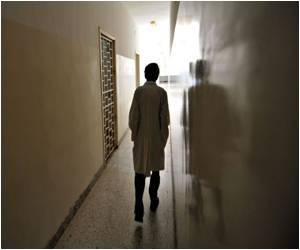Stress from using electronic health records has been linked to physician burnouts. It was found that due to less documentation time, the doctors were spending a lot of time managing records at home.

‘In the study, electronic health records were found to add to the frustration of the doctor; they were a lot of time managing records at home.’





"You don't want your doctor to be burned out or frustrated by the technology that stands between you and them," said Dr. Rebekah Gardner, an associate professor of medicine at Brown University's Warren Alpert Medical School. "In this paper, we show that EHR stress is associated with burnout, even after controlling for a lot of different demographic and practice characteristics. Quantitatively, physicians who have identified these stressors are more likely to be burned out than physicians who haven't."The findings were published on Wednesday, Dec. 5, in the Journal of the Medical Informatics Association.
Many prior studies have looked into the factors that contribute to burnout in health care, said Gardner, lead author and also a senior medical scientist at Healthcentric Advisors. Besides health information technology, these factors include chaotic work environments, productivity pressures, lack of autonomy and a misalignment between the doctors' values and the values they perceive the leaders of their organizations hold.
She added that prior research has shown that patients of burned-out physicians experience more errors and unnecessary tests.
EHR-related stress
Advertisement
Of the almost 4,200 practicing physicians in the state, 43 percent responded, and the respondents were representative of the overall population. Almost all of the doctors used EHRs (91 percent) and of these, 70 percent reported at least one measure of EHR-related stress.
Advertisement
The researchers found that doctors with insufficient time for documentation while at work had 2.8 times the odds of burnout symptoms compared to doctors without that pressure. The other two measures had roughly twice the odds of burnout symptoms.
The researchers also found that EHR-related stress is dependent on the physician's specialty.
More than a third of primary care physicians reported all three measures of EHR-related stress -- including general internists (39.5 percent), family medicine physicians (37 percent) and pediatricians (33.6 percent). Many dermatologists (36.4 percent) also reported all three measures of EHR-related stress.
On the other hand, less than 10 percent of anesthesiologists, radiologists, and hospital medicine specialists reported all three measures of EHR-related stress.
While family medicine physicians (35.7 percent) and dermatologists (34.6 percent) reported the highest levels of burnout, in keeping with their high levels of EHR-related stress, hospital medicine specialists came in third at 30.8 percent. Gardner suspects that other factors, such as a chaotic work environment, contribute to their rates of burnout.
"To me, it's a signal to health care organizations that if they're going to 'fix' burnout, one solution is not going to work for all physicians in their organization," Gardner said. "They need to look at the physicians by specialty and make sure that if they are looking for a technology-related solution, then that's really the problem in their group."
However, for those doctors who do have a lot of EHR-related stress, health care administrators could work to streamline the documentation expectations or adopt policies where work-related email and EHR access is discouraged during vacation, Gardner said.
She also suggested that making the user interface for EHRs more intuitive could address some stress; however, when the research team analyzed the results by the three most common EHR systems in the state, none of them were associated with increased burnout.
Earlier research found that using medical scribes was associated with lower rates of burnout, but this study did not confirm that association, which Gardner found surprising. In the paper, the authors suggest that perhaps medical scribes address the burden of documentation, but not other time-consuming EHR tasks such as inbox management.
Since the survey was not anonymous and the RIDOH is responsible for licensing physicians in the state, the doctors likely underreported their levels of burnout and stress, Gardner said. However, she believes the associations her team found are still valid and significant.
Source-Eurekalert










